2022

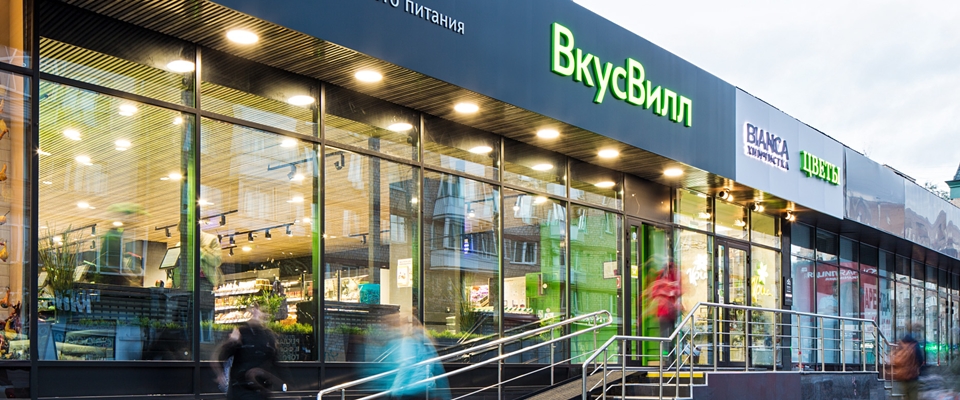
I just finished reading a book entitled “VkusVill: how to a retail revolution by doing everything wrong” by Evgeny Shchepin, an employee of the Russian chain VkusVill (translated as Tasty Town).
I recommend this book to anyone in the consumer retail space for its simple language and mostly the transparency in which the book was written by someone from inside the company and bluntly showing all the errors they made during their scaling and growth process.
We are used mostly to American, Japanese, European, and lately Chinese corporate success stories and books but not anything coming from Russia until I discovered this book, although Russia is one of the world largest consumer retail markets with giants like Magnit, X5 Retail Group and Lenta, to name few with many different store formats and thousands of locations all over the Russian territory.
The book talks about 37 rules that made the success of VkusVill, it really shows “the simple culture” of a company that became a Russian success story and the persistence of the founder and his team to make it work given the good and bad circumstances while keeping a start-up spirit running in the air and without taking 1 single loan and rotating the money generated from actual stores to open new locations!!!
You can download the book from this link: https://vkusvill.ru/en/business/files/VkusVill_Book.pdf
Extracted from their website:
VkusVill started by Andrey Krivenko in Moscow in 2009 as a food retail chain (convenience format; 150 sqm trade area; 2,000 SKUs) offering fresh and healthy food with short shelf life at affordable prices, all under its own brand ‘VkusVill’.
In 2019, the Company reached 1,200 stores in Moscow and other cities of Russia (27 in total), reported $1.3 bn of revenue, and had over 10,000 employees. Explosive growth was always financed with operating cash flow only. VkusVill has always been profitable and cash-positive. No external equity investments and no loans ever since inception.
VkusVill leverages its strong brand equity (healthy products at affordable prices) and its unique IT algorithms which allow for efficient supply chain of products with short shelf life (up to 7 days). It also has super-high customer engagement, achieved via various feedback-collecting channels (mobile apps, social networks, website). ROI when opening a store is over 100%. It all helps the Company to report historical sales CAGR of well over 50% and open stores quickly.
Additional Reading:
VkusVill is planning to launch in the Netherlands & France, read more here
Check the VkusVill store concept by Art. Lebedev Studio at this link

Retailers + Brands and Consumers + Shoppers = it’s love, maybe a 1-sided love affair, but it is there since forever.
Retailers and Brands cannot live in a world where consumers and shoppers do not exist, thus they need to take good care of them and fall in love with them every day and grow this love just to keep them coming their way because they are their only raison-d’être to open their stores every morning.
The retailers BIG Data should consider in the overall perspective:
_ Forecast & Replenishment Demand
_ Historical Purchases
_ Seasonality of Products and Events
_ Local & National Events
_ National and International Holidays
_ Strikes (if any)
_ Promotions & Their Effect
_ Weather Effect
Then in the more personalized part of the love affair with its clientèle:
_ The Store Location
_ The Neighborhood
_ Its Customers & Shoppers Profiles
_ The Surrounding Competition
_ Some Other Specifics
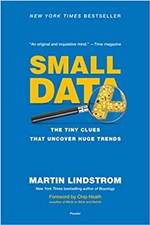 SMALL DATA by Martin Lindstrom
SMALL DATA by Martin Lindstrom
Hired by the world’s leading brands to find out what makes their customers tick, Martin Lindstrom spends three hundred nights a year overseas, closely observing people in their homes. His goal: to uncover their hidden desires and turn them into breakthrough products for the world’s leading brands. In a world besotted by the power of Big Data, he works like a modern-day Sherlock Holmes, accumulating small clues to help solve a stunningly diverse array of challenges. Lindstrom connects the dots in this globe-trotting narrative that will fascinate not only marketers and brand managers, but anyone interested in the infinite variations of human behavior.
Small Data combines armchair travel with forensic psychology into an interlocking series of international clue-gathering detective stories. It presents a rare behind-the-scenes look at what it takes to create global brands, and along the way, reveals surprising and counterintuitive truths about what connects us all as humans.

Consumer Behavior will never stop surprising us!
And when I say “us”, I mean the people involved in the Retail and FMCG (fast moving consumer goods) industries.
We are all aware of the latest worldwide epidemic of Coronavirus which led to an unexpected “Panic Buying” behavior worldwide on many and different categories and sometimes to real fights in stores and at the shelves just to grab more of a product:
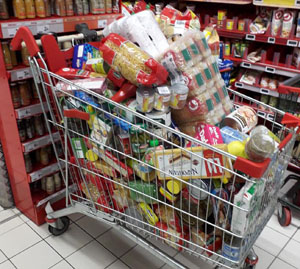 1st category: is simply the face masks, 3-Ply mask, N-95 mask, etc… new names of masks that usually consumers never heard of, all markets are out of stock, factories production output not enough, prices rocketed to an unrealistic level in some markets, and the demand is still high in all markets.
1st category: is simply the face masks, 3-Ply mask, N-95 mask, etc… new names of masks that usually consumers never heard of, all markets are out of stock, factories production output not enough, prices rocketed to an unrealistic level in some markets, and the demand is still high in all markets.
2nd category: and it goes straight after the masks, are the medicines and thermometers. Any type related to flu, fever, throat, vitamins, etc… mostly OTC (over-the-counter) which are the easiest to grab without any prescription.
3rd category: the hand sanitizers, disinfectant wipes, any alcohol-based liquids to kill germs, soap bars, liquid soaps, and… toilet papers, which still no one is able to understand why this category specifically, prices of course surged and major multinational grabbing more and more sales volumes.
4th category: rice and pasta, yes indeed the what-so-called “staple food” are now bought and kept in large quantities in every house worldwide.
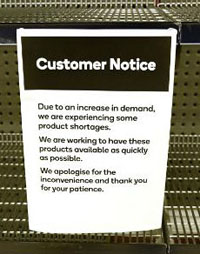 I do totally understand when people are panicking, buying and stocking out of fear but in my opinion -Panic Buying- is not necessary especially when you are not really sure about the start and the end of the event itself that brought you to this panic situation and built only on speculations. It also leads to over-consuption, stockpiling and over-spending in many cases but human nature does not count spending when in time of fear and uncertainty.
I do totally understand when people are panicking, buying and stocking out of fear but in my opinion -Panic Buying- is not necessary especially when you are not really sure about the start and the end of the event itself that brought you to this panic situation and built only on speculations. It also leads to over-consuption, stockpiling and over-spending in many cases but human nature does not count spending when in time of fear and uncertainty.
1 or 10 liters of hand sanitizer, 100 or 500 rolls of toilet paper, 10 or 20 boxes of wipes,… will all finish then what? Back to square 1 to replenish. Psychologists say a mix of herd mentality and over-exposure to coverage of the virus is to blame.
Meanwhile, retail stores are & will be facing 2 majors challenges. The first challenge is the logistical bottleneck to replenish their shelves and the second is the supply shortages mostly linked factories and suppliers.
Which also led many retailers to limit the purchasing quantity by client and many supermarkets were forced to take this action in order to ensure they have enough supply.
Until humanity finds a solution, vaccine or cure for this virus, Keep Your Faith in GOD!
And always remember, everything will be okay in the end, if it is not okay, then it is not the end.
More readings:
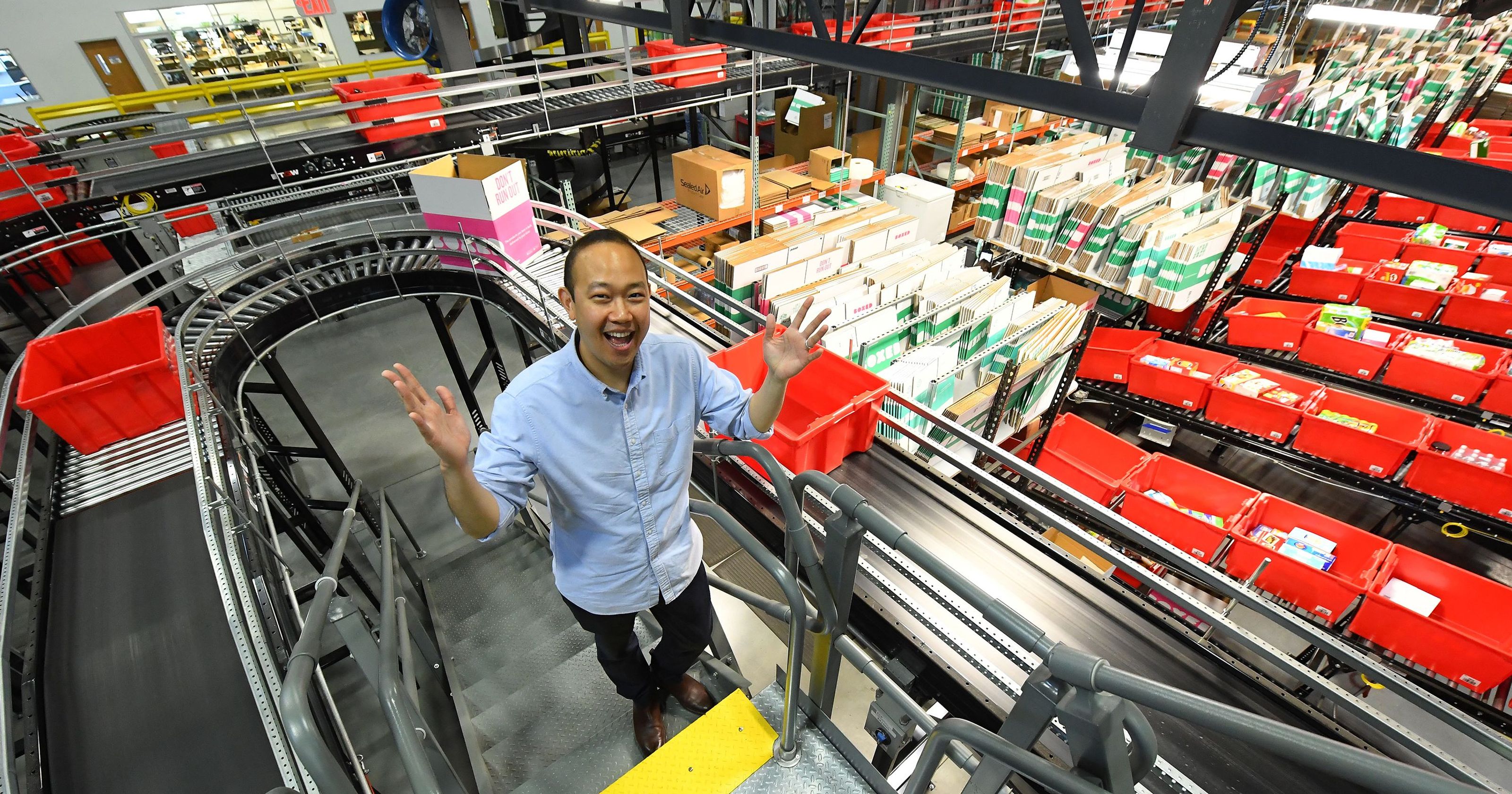
Boxed.com is an American online and mobile membership-free wholesale retailer that offers direct delivery of bulk-sized packages via the Boxed app or the website. Boxed product offering has been compared to that of Costco. It is based in New York City and was founded in August 2013 by Chieh Huang, Jared Yaman, Christopher Cheung, and William Fong.
Boxed is headquartered in New York City, and has four fulfillment centers around the country: in New Jersey, Georgia, Nevada and Texas, which allow orders to be delivered within two days. The company also has a support office in San Mateo, California.
In 2016, Boxed was backed by $132 million in funding by investors including GGV Capital and DST Global.
In 2018, Boxed received $111 million in series D funding from Aeon Group, one of the largest retail chains in Japan, valuing the start-up at $600 million.

Lately, the death of retail as we know it is everywhere on the internet. Big brands disappearing overnight, stores shutting down by dozens daily, malls becoming ghost towns and everybody is pointing at the internet being the reason behind this.
Well, I am a big believer of brick-and-mortar retail and no matter how big the internet and Amazon.com will get, in my opinion retail is here to stay but conditionally.
If retailers want to live, they need and should innovate. The beauty of brick-and-mortar retail is the flexibility.
The flexibility of changing what is not working, finding new ways to make their stores better and more attractive, spending more time on their shoppers behavior, re-engineering their concepts, analyzing their data, adapting new communications channels, taking a step back and looking at the wider picture of the situation and correct things.
It is not true that the internet is killing the retail when the internet retailers are opening physical shops. This simply means the actual business model of the retailers is not working anymore and they need change.
Change is not easy, especially for the old school retailers. with large, very large stores, hundreds of employees on the floor, endless aisles and a heavy machine to operate. The new retail business model should be lean to survive, with a very lean structure just to quickly adapt to changes, move on and live a happy retail life.

Easy.com is a well known British group having under its umbrella an endless number of brands combined with the word Easy, their most famous one is the low-cost airline EasyJet, the founder of Easy Group is Stelios. Not long ago, Easy Group also launched EasyFoodStore with a very simple business line “No expensive brands, just food honestly priced”.
Yesterday, Carrefour Belgium opened its 1st store called Easy Market along with their Carrefour icon and previously they opened also in Belgium 2 stores called Easy Caddy without any link to the Carrefour brand. The main idea behind these 2 concepts is to test a low-cost stores which are too big for the Carrefour Express concept and too small for the Carrefour Market concept. Both Easy Market and Easy Caddy use the famous orange color used by EasyGroup for all its brands and products.
EasyGroup is very keen about its branding and colors, they have a dedicated page on their website for this matter entitled Brand Thieves, we need to see where this going to get on the brand trademarking side, the word easy and the orange color, unless there is a deal about it.
If you have any information concerning this, please feel free to share it.

I am a big fan of consumer products and retail concepts and this is what I do for living. I was trying lately to find any incubator and/or accelerator related to those industries in this part of the world (Levant & MENA) but unfortunately I came across so many of them who are only focused on technology startups and only technology and some of them also have a restricted geographic region they do cover.
I was kind of disappointed seeing no one is interested in “offline” consumer and retail (except if you are an online or e-commerce oriented). A very big industry and sector that touch the lives of millions if not billions worldwide but investors most probably prefer the fast bucks lane and are in continuous search for the next Facebook or Uber.
I would like to launch a consumer & retail oriented incubator and accelerator with no geographic restrictions, but looking for people sharing the same vision and dream to build it together.
If you are a consumer and retail incubator and accelerator that I missed finding in a way or another, please get in touch.
if you are a consumer and retail passionate, let’s do this together.